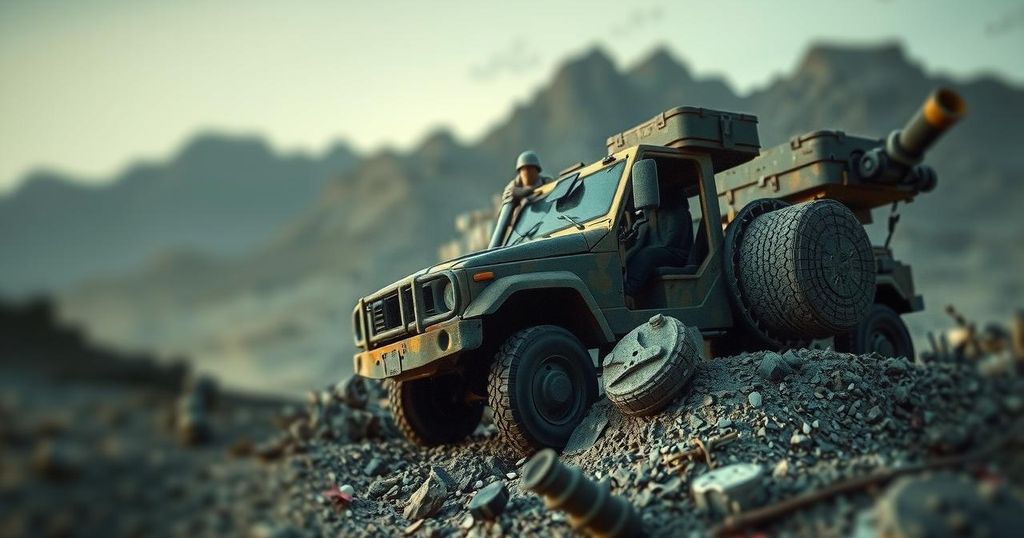M23 Group’s Advance Towards Kinshasa Escalates DRC Conflict

The Rwanda-backed M23 group plans to march on Kinshasa after capturing Goma, leading to heightened military tensions in the DRC. President Tshisekedi vows to continue the fight against the insurgents, while local communities face humanitarian crises exacerbated by the conflict. Rwanda faces international pressure to withdraw its support for M23 amid accusations of mineral exploitation in the DRC.
The Rwanda-backed armed group M23 has declared its intention to advance towards Kinshasa, the capital of the Democratic Republic of Congo (DRC), following significant territorial gains in the eastern region, including the strategic city of Goma. This escalation draws attention to the long-standing conflict in an area rich in natural resources and underlines the complexities of foreign involvement and local governance. M23’s leader, Corneille Nangaa, emphasized the group’s commitment to liberating the region and indicated plans to restore basic services and aid the displaced populace.
Congolese President Felix Tshisekedi has responded by reaffirming his administration’s determination to combat the insurgents, asserting that a coordinated military response is mobilized against what he described as terrorists and their backers. The United Nations expressed concern regarding credible reports of M23’s expanding offensive into strategically important territories like Bukavu. In an atmosphere of rising violence, which has reportedly resulted in over a hundred fatalities, local communities are expressing desperation as they confront overwhelming humanitarian challenges.
Reactions from regional actors have been mixed, with countries such as Angola, China, and France advocating for Rwanda to withdraw its forces from the DRC. The French Foreign Minister recently engaged in discussions with both President Kagame of Rwanda and President Tshisekedi to address the crisis. Kagame has publicly criticized the Congolese leader, questioning the legitimacy of Tshisekedi’s leadership and asserting that M23 members are Congolese nationals, not Rwandans.
The humanitarian situation continues to deteriorate, with food insecurity affecting the local population. The escalating conflict has forced more than half a million individuals to flee their homes and has raised alarm over potential outbreaks of infectious diseases in this unstable region. Additionally, the DRC government accuses Rwanda of exploiting local mineral resources, a claim supported by UN investigations that suggest Kigali maintains a significant military presence in the country and exerts influence over M23.
The conflict in the Democratic Republic of Congo, particularly in the eastern regions, has a complex history rooted in the aftermath of the 1994 genocide in Rwanda. The M23 rebel group emerged from a series of armed groups vying for control and influence in the resource-rich areas of the DRC. The region has seen cycles of violence and attempts at peace negotiations, often complicated by external military involvement, particularly from Rwanda. The DRC is endowed with valuable minerals like gold, cobalt, and coltan, and accusations of exploitation have frequently arisen, deepening tensions between surrounding nations.
The advance of the M23 group towards Kinshasa marks a significant moment in the ongoing conflict in the DRC, heightening concerns over regional stability and humanitarian crises. The response from the Congolese government and international community reflects the urgency of addressing both the military and humanitarian aspects of the situation. The complex interplay between local insurgency and foreign influence underscores the challenges of achieving lasting peace and security in a region fraught with both historical grievances and economic interests.
Original Source: www.wfxg.com








